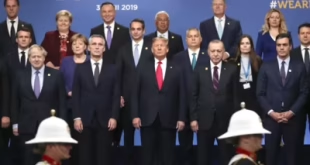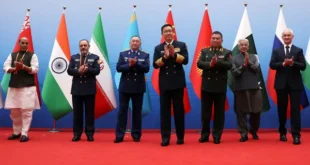- The United Nations General Assembly (UNGA) ended 2022 by passing a resolution that asked the body’s highest court, the International Court of Justice (ICJ) , to render its opinion on the legal consequences of Israel’s prolonged occupation of Palestinian land.
- The resolution was passed with 87 member countries voting favourably, as opposed to 26 countries, including the U.S. and Israel, voting against it. India was one of the 53 countries that abstained from the vote.
How has Israel altered its occupation of Palestinian land over the years?
- Official Israeli statistics show that Jewish settlers existed in historical Palestine even before the state of Israel was declared in 1948. A UNGA resolution had earlier sought to partition British mandate Palestine.
- But as the UN partition plan was rejected by the Arabs and the British mandate was coming to an end, Zionists went ahead declaring independence, triggering the first Arab-Israel war.
- When the war was over, Israel had captured more territories than what the UN plan had proposed and some 7,00,000 Palestinians were displaced.
- Historical Palestine was divided into the State of Israel (including West Jerusalem), the West Bank (including East Jerusalem) that was taken over by Jordan and the Gaza Strip (controlled by Egypt).
- Tensions kept rising between Israel and three countries in the region — Egypt, Jordan, and Syria — which led to the six-day war of 1967.
- The war resulted in Israel capturing the West Bank, the Gaza Strip and East Jerusalem, along with Syria’s Golan Heights and the Sinai Peninsula of Egypt.
- While the Sinai Peninsula was later returned to Egypt, other captured areas of Palestinian and Syrian territory remain under Israel’s military control. Later, Israel also declared the whole of Jerusalem as its “eternal, undivided capital”.
- While Israel withdrew from Gaza in 2005, it’s external borders are still controlled by Israel and Egypt. While the UN Security Council passed a resolution in late 1967 stating that Israel must withdraw from the territories it seized in the war, it is yet to happen and the fate of Palestinian self-determination remains uncertain.
- Palestinians seek the West Bank as the heartland of a future independent State. However, in the decades since the 1967 war, Israel has constructed dozens of Jewish settlements in West Bank, alongside the three million Palestinians living under Israeli military rule.
- Most of the international community considers Israel’s West Bank settlements illegal and an obstacle to peace. Incidents of violence and killings of Palestinians by Israeli forces have become common over the years.
What does the resolution seek to do?
- The resolution passed by the UNGA on December 30 asked the ICJ to provide its advisory opinion on the legal consequences of Israel’s “occupation, settlement and annexation … including measures aimed at altering the demographic composition, character and status of the Holy City of Jerusalem, and from its adoption of related discriminatory legislation and measures.”
- While the U.S. rejected the resolution and major European powers abstained, the vote got unanimous support from the Arab nations.
- There are two possibilities when a referral is made to the ICJ, it can either lead to a settlement with a party withdrawing its case or it can lead to a trial followed by a verdict. While its rulings are binding, the ICJ has no power to enforce them.
How does the new Israeli government look at the conflict with Palestine?
- The UN resolution coincides with the return of Benjamin Netanyahu as Israel’s Prime Minister for a sixth time, with the most far-right coalition in the history of Israel taking charge of the administration.
- The current six-party right-wing coalition has five ultra-orthodox and far-right Jewish nationalist parties.
- There are fears that the new hard-line regime will bring damaging impacts for Palestinians as several of Mr. Netanyahu’s key allies, including most of the Religious Zionism party, are ultranationalist West Bank settlers.
- The new government’s coalition agreement, a policy document enlisting its agendas, states that its top priority will be the expansion of Israeli settlements in the West Bank and the legalisation of dozens of illegally built outposts.
- “The Jewish people have an exclusive and unquestionable right to all areas of the Land of Israel,” the document states, also citing the coalition’s commitment to “advance and develop settlements in all parts of the land of Israel,” including “Judea and Samaria,” the biblical names for the West Bank.
- The agreement also promises to annex the West Bank “while choosing the timing and considering the national and international interests of the state of Israel.”
SOURCE: THE HINDU, THE ECONOMIC TIMES, PIB
 Chinmaya IAS Academy – Current Affairs Chinmaya IAS Academy – Current Affairs
Chinmaya IAS Academy – Current Affairs Chinmaya IAS Academy – Current Affairs



